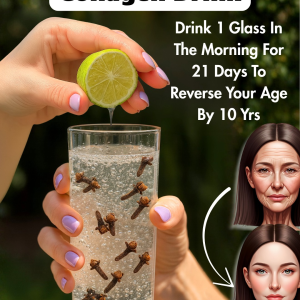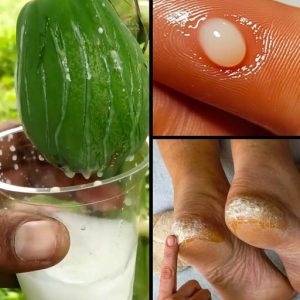
If your knees seem to “announce the rain” before the weather forecast, your body is sending a clear message: it needs support. Starting in your 30s, your natural collagen production begins to decline. The signs are subtle at first—morning stiffness, creaking joints, heavy legs, and slower recovery after activity. The good news is that you can reactivate your body’s repair system naturally by eating strategically.
The 8 Collagen-Boosting Fruits and How to Use Them
1. Kiwi – Activates Collagen Formation
Rich in vitamin C, kiwi supports collagen synthesis at the cellular level.
How to eat: 1 whole kiwi (skin washed) for breakfast or as a mid-morning snack. The skin adds extra antioxidants.
Tip: Blend with spinach for a green smoothie that enhances nutrient absorption.
2. Pineapple – Reduces Inflammation

Pineapple contains bromelain, an enzyme concentrated in its core that helps reduce inflammation.
How to take: 1 cup of fresh pineapple (not canned) in the morning or after physical activity.
Tip: Include the core if your blender can handle it—it’s the most nutrient-rich part.
3. Papaya – Improves Protein Utilization
Papain, an enzyme in papaya, helps your body absorb amino acids that form collagen.
How to take: 1 cup of ripe papaya with a few drops of lemon juice, ideal after exercise.
Optional: ½ teaspoon of crushed papaya seeds occasionally for added digestive support.
4. Guava – A Natural Vitamin C Powerhouse
Guava provides one of the highest natural sources of vitamin C, along with lycopene and polyphenols that protect existing collagen.
How to eat: Whole and with the skin, like an apple.
Alternative: If unavailable, add raw red bell pepper to salads for a similar vitamin C boost.
5. Blackberries – Anti-Inflammatory Protection
Their anthocyanins act as powerful antioxidants that help prevent inflammation from breaking down collagen.
How to take: A handful (fresh or frozen, unsweetened) with plain yogurt or oatmeal.
6. Blueberries – Boost Circulation and Repair
Blueberries are rich in flavonoids that improve blood flow to connective tissues, enhancing repair.
How to take: ½ to 1 cup daily, preferably wild blueberries. Enjoy them in a smoothie or over oatmeal.
7. Strawberries – Prevent Collagen Breakdown

Strawberries combine vitamin C with ellagic acid to help preserve collagen fibers.
How to eat: 1 cup of fresh strawberries in the morning or post-activity.
Avoid: Jams and processed strawberry products loaded with added sugar.
8. Indian Gooseberry (Amla) – Concentrated Collagen Support
Amla is exceptionally rich in stable vitamin C and protective polyphenols.
How to take: 1 teaspoon of amla powder in warm water with lemon on an empty stomach, 4–5 days per week.
Note: Consult a healthcare professional if you take medication, as amla may interact with certain drugs.
14-Day Collagen Activation Plan
Days 1–3
- Start your morning with kiwi and a glass of water.
- Include 1 cup of pineapple during the day.
- Begin reducing added sugar and ultra-processed foods.
Days 4–7
- Alternate kiwi with guava.
- Add ½–1 cup of blackberries or blueberries daily.
- Walk 20–30 minutes each day to stimulate joint lubrication.
Days 8–14
- After physical activity, have 1 cup of papaya with lemon.
- Include 1 cup of strawberries daily.
- Take amla powder upon waking if using it.
- Maintain consistent hydration throughout the day.
Daily check-in: Each morning, rate your stiffness from 0 to 10. Track changes in how easily you move when standing or walking. You should notice gradual improvement.
Ready-to-Use Combinations (No Added Sugar)
- Green Collagen Smoothie: Kiwi with skin + spinach + cucumber + water.
- Tropical Anti-Inflammatory Drink: Pineapple (with core) + turmeric + ginger + water.
- Post-Workout Restorative: Papaya + lemon + soaked chia seeds.
- Protective Berry Bowl: Blackberries + blueberries + natural yogurt or kefir.
- Morning Collagen Boost: Warm water + lemon + 1 tsp amla powder.
What Damages Collagen (Avoid These Habits)

- Excess sugar and refined flours, which increase inflammation.
- Tobacco and alcohol, which accelerate oxidative stress.
- A sedentary lifestyle, which limits joint lubrication.
- Chronic lack of sleep, as collagen repair happens mainly at night.
Final Note
Rebuilding collagen is not about supplements or trends—it’s about consistency. By combining the right fruits with an anti-inflammatory lifestyle and daily movement, you give your joints and tissues what they truly need to stay strong, mobile, and pain-free.




